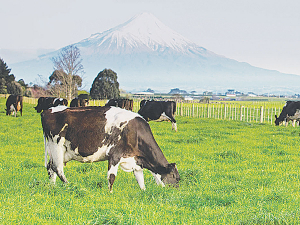Research commissioned by Federated Farmers and Beef + Lamb New Zealand (B+LNZ) has found almost two thirds of Kiwis oppose foreign companies buying New Zealand farms to offset their emissions.
The research, conducted by the company Curia, also shows that 54% of New Zealanders support a limit on the amount of fossil fuel emissions that can be offset with new pine forests.
The findings coincide with the release of a new independent report by Orme & Associates, commissioned by B+LNZ, which shows more than 52,000ha of land was purchased by forestry interests in 2021. This is a 36% increase on the previous two years, and up from 7,000ha in 2017 – far more than the 25,000ha a year of exotics that the Climate Change Commission has suggested are needed to achieve New Zealand’s climate change objectives.
B+LNZ chief executive Sam McIvor says if the present rate of pine plantings continue it will cause significant economic damage to NZ’s red meat sector and rural communities. He says of the 175,000ha of land purchased for afforestation over the last five years, about 134,500ha is grassland suitable for planting in forestry.
“If 100% of this suitable land was planted, B+LNZ expects this would lead to a decline of around 1 million stock units,” he told Rural News. “Equating to an annual farm production loss of $170 million at the farm gate and a cumulative production loss of $540 million from progressive planting from 2017 to 2022.”
McIvor says downstream from the farm gate a further 44% of value is added from processing.
“At 2021-22 export prices, this equates to lost export receipts of $245 million annually and $775 million from progressive planting from 2017 to 2022.”
Federated Farmers president Andrew Hoggard says that given the rate at which the carbon price is expected to continue to rise, his organisation and B+LNZ are calling for urgent policy changes including limits to be placed on forestry offsetting within the Emissions Trading Scheme (ETS).
“New Zealand is currently the only country in the world to allow 100 percent offsetting of fossil fuel emissions within the ETS,” he told Rural News. “The European Union only allows 10 percent and California eight percent. Clearly, the New Zealand Government hasn’t woken up to this fact.”
McIvor says the two organisations are calling on the Government to urgently work with them and other groups to develop and implement options before the effects on New Zealand’s food production and on its rural communities become much worse.











